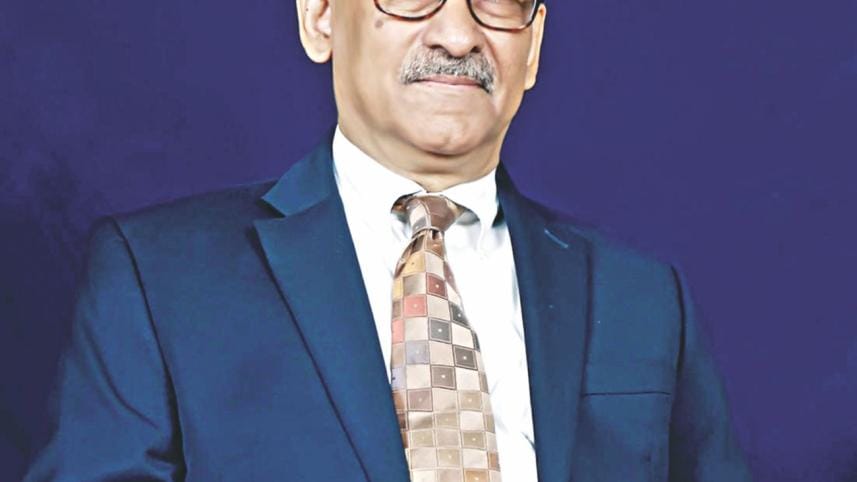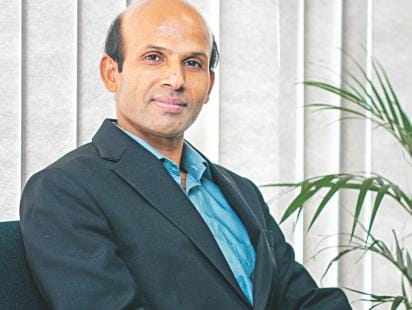WALK THE TALK WITH VICE CHANCELLORS

PROFESSOR DR SYED SAAD ANDALEEB
Vice Chancellor
BRAC University
DIGITAL is the new reality. Any educational institution that is not thinking digital is going to go the way of the dinosaur! Teaching must give way to "reaching". With technology, teachers have the opportunity to be much more creative. For example, Google Apps for Education (GAFE) is a great tool to connect with students in diverse ways. The important thing is that if teachers serve as role models to demonstrate digital skills, students will learn fast. There must be required courses that enhance digital skills.
BRAC University has some valuable innovations on the digital front: Onnesha, our nano-satellite, aims to provide digital images of the country for policy purposes (in agriculture, water resources, urban design, population distribution, climate change, etc.). We have established the Global Development Learning Network (GDLN) that can facilitate overseas video conferencing facilities, organise meetings, offer online training and workshops, conduct interviews and engage in consultations. We will need to transition to emerging areas such as IOT and Big Data.
Distance learning is a must today. With hybrid programmes, some of the travails of having to be in a classroom can be eliminated by providing online education. I urge all educational institutions to explore the free resource Google Classrooms as starters. I also urge UGC to explore ways of allowing online and digital classes to be availed to students. While they still insist that private universities build permanent campuses, it is well worth considering whether such resources may be better deployed to build technology platforms instead of brick-and-mortar facilities!

PROFESSOR DR ABDUR RAB
Vice Chancellor
Eastern University
DIGITAL technologies are changing very fast. To keep pace we hold regular workshops on current developments in the field such as Big Data, Internet of Things and Artificial Intelligence. We have already conducted various training programmes in association with the ICT Ministry.
Currently, we are using software to maintain everyday administrative work of the university. Students can get all the required information from this network. The digital learning platform Moodle has been introduced in Eastern University for facilitating online learning and teaching. Now we can monitor the classrooms and improvise our teaching methods. It also keeps students connected to the learning process. Our Institutional Quality Assurance Cell is working on further upgradation of the learning environment of the university with support from HEQEP. We should gradually move towards distance learning. It will create flexibility concerning the time, place and method of learning. UGC should actively think about it and allow private universities to introduce distance learning courses.
Eastern University has established a digital library in association with the UGC. There are hundreds of free e-textbooks and journals in the library. A student can access all the resources through the internet. We have even brought the physical resources of our library under digital maintenance.
Eastern University is building a permanent campus in Ashulia. It will be a smart campus, which means everything from classrooms to cafeteria will be run through digital technologies. Also, we will be connected to BdREN in that campus.

PROFESSOR DR M OMAR RAHMAN
Vice Chancellor
Independent University Bangladesh (IUB)
Earlier a university was judged by how big a library it has. Now, you just need a smartphone and internet connection, and you can access more information than you can get from the biggest library in the world. I believe digital revolution is going to totally transform higher education.
IUB has invested heavily in digitisation. We are modifying our courses by adopting digital technologies. For instance, we have an innovative course named "1971 through the lenses". All the content of the course is available in electronic format. It is not just a collection of history books. There are hundreds of images and audio visuals that help a student to understand the context of our Liberation War which one can get by reading the chronology of events.
We have a plan to introduce distance learning courses like MOOC (Massive Online Open Courses). We are involved in a test programme supported by the University of California, San Diego where a full course is being taught from California. However, in Bangladesh, private universities are not allowed to run distance learning programmes. The government should seriously think about opening it up for all the universities. There is a huge demand for higher education but we do not have adequate number of teachers and institutions to meet it. It is not possible to set up brick-and-mortar universities everywhere in the country. I believe distance learning will revolutionise the whole education system of the country.
Currently, we need permission from UGC before we can introduce a new course. By the time you get approval, things change. We need more flexibility to design our courses to match the changing world of digital technologies.

PROFESSOR DR M REZWAN KHAN
Vice Chancellor
United International University (UIU)
To keep pace with the digital age we need to focus on two aspects: education on digital technologies and application of these technologies. We have to teach the students about the emerging fields of digital technologies. At the same time, we have to adopt these technologies in the entire learning system of universities e.g. smart classrooms and digital library. UIU will soon move to a new campus which will be a smart campus and will be connected to high-speed internet through BdREN. This will ensure more flexibility and efficiency in running the university.
Our computer science and engineering departments are offering courses on the emerging fields of digital technologies such as Big Data and IoT. We also hold regular workshops on the subjects which are yet to be included in the curricula. More importantly, we are teaching students from different disciplines about the application of digital technologies in their respective fields e.g. e-commerce for business students. We are also training students on software development and chip designing which have very high demand in the global market. The government should support universities in these projects and create opportunities for collaboration with markets and academia across the world.
Though private universities are not allowed to introduce distance learning courses we are creating supplementary digital content for students. Now, if a student misses a class s/he can still listen to the lectures uploaded in the network of the university. These things will create better engagement between the education providers and learners and bring qualitative changes in the whole education system.

PROFESSOR DR HM JAHIRUL HAQUE
Vice Chancellor
University of Liberal Arts Bangladesh (ULAB)
This is the age of digital learning. Digital technologies are facilitating higher education across all learning areas and domains. To match the global shift, we have to move towards online learning and teaching. In ULAB, we are using the Moodle platform for this purpose. It is a single robust and integrated system to provide a personalised learning environment to educators, learners and administrators. We are planning to make all the class lectures available online so that a student can access the resources anytime, anywhere. I think it is very important to train our teachers on how to use online teaching tools.
ULAB has an online university management system through which a student can get all the necessary information in a single digital platform. Our computer science department has developed an app through which a student can track all the co-curricular and extra-curricular activities happening in the campus. We have a campus radio and TV channel. The whole purpose of these initiatives is to encourage students in active learning. This is also the keyword for digital education which aims to use technology to connect, collaborate, curate and create.
In imparting education on digital technologies there should be collaboration with the digital industry. ULAB has partnered with DataSoft in establishing a lab for teaching Internet of Things. We also have two dedicated labs where students get hands-on training on how to develop apps. These trainings will make students competitive in the emerging job fields.



 For all latest news, follow The Daily Star's Google News channel.
For all latest news, follow The Daily Star's Google News channel.
Comments